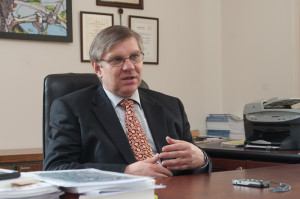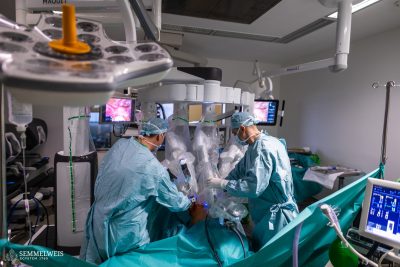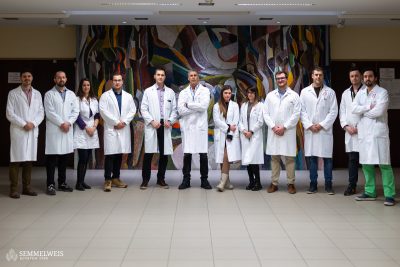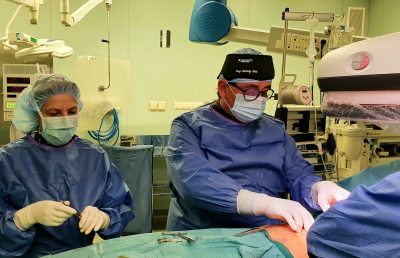The research group established under the leadership of Dr. László Hunyady and supported by the Hungarian Academy of Sciences (MTA) will analyse the functioning of a group of hormone receptors. The aim of their research is to identify and analyse chemicals that are capable of controlling the signal reception processes of these receptors. According to the professor, “when we activate a receptor, several processes start at the same time instead of just one. We are interested in whether it is therapeutically possible to activate one part of these parallel processes while blocking the other”.
Our research team’s primary field of interest is the analysis of this new pharmaceutical approach. They identify and analyse those processes which are either stimulated or blocked by the given receptor using bioinformatics methods. As a next step they explore whether different agents block or activate them. If they manage to find an agent that can selectively control reception processes, then these might prove extremely useful in therapy in terms of side effects.
 The Head of Semmelweis University’s Department of Physiology emphasised that their research directly aims to discover new phenomena, i.e. it is basic research, which is then called exploratory research in case it yields new results. According to him, exploratory research is highly needed in an academic environment for multiple reasons. On one hand, scientific research results are important in terms of a university’s international recognition. Scientific results weigh considerably when international university rankings are drawn up. On the other hand, new results may very well be the first step in future developments. Innovation-management is also a crucial factor which has to be taken into account by researchers.
The Head of Semmelweis University’s Department of Physiology emphasised that their research directly aims to discover new phenomena, i.e. it is basic research, which is then called exploratory research in case it yields new results. According to him, exploratory research is highly needed in an academic environment for multiple reasons. On one hand, scientific research results are important in terms of a university’s international recognition. Scientific results weigh considerably when international university rankings are drawn up. On the other hand, new results may very well be the first step in future developments. Innovation-management is also a crucial factor which has to be taken into account by researchers.
The professor also underlined the importance of exploratory research since it directly influences the standard of the academic staff. The possibility of a research perspective is a key factor in attracting talented young researchers. According to Dr. Hunyady, the universities, institutions and clinics must strive to attain high quality research and to have research groups that attract both national and international support with the ability of employing researchers. “I strongly encourage in my institution that those we employ as researchers should also take part in teaching.” The teaching workload is more evenly distributed where there are numerous research projects along with researchers who contribute to teaching. The quality of teaching will rise accordingly and more time will remain for research activities. This is a self-reinforcing process. We should not forget that the world’s top universities are research dominated. The quality of research will improve the quality of education as well.
Dr. László Hunyady also mentioned that exploratory research plays a crucial role in keeping young researchers at home and in encouraging them to come back from abroad. Many successful young researchers work as assistant researchers abroad. It would be an enormous possibility for these professionals to continue their work by forming their own research groups in Hungary. This is the primary goal of the Hungarian Academy of Sciences’ new successful Momentum Programme. The professor emphasised that as a leader of the university it is very important for him to provide talented and young researchers with the possibility to be able to work in their home country.
Four new academic research groups were formed at Semmelweis University on July 1, 2013.
Szilvia Tóth-Szabó
Translated by Bonifac Makkai


